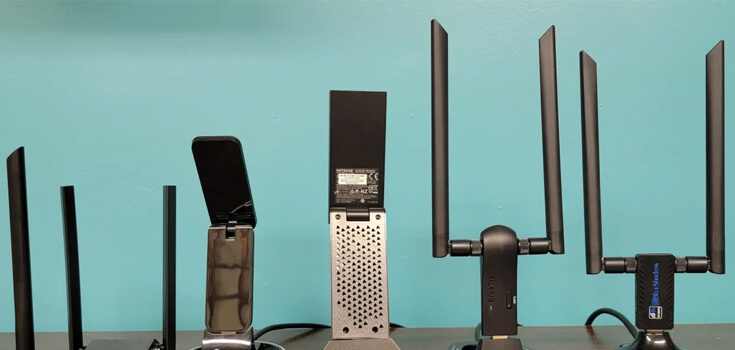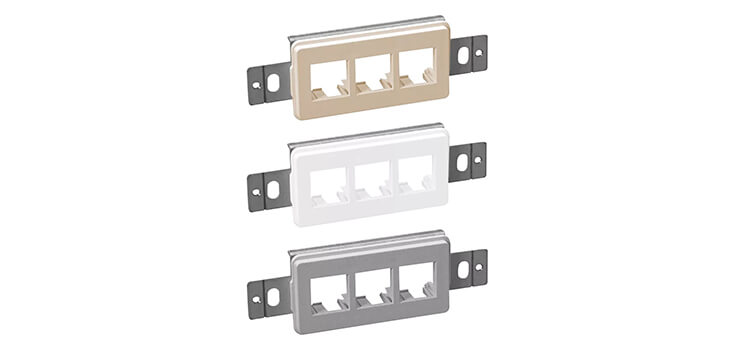Choosing the right adapter type for your devices is important to ensure optimal performance, efficiency, and safety. However, with many options available, selecting the perfect match may seem overwhelming.
This guide will help you understand different adapter types and what to choose.
Understanding Adapter Types
AC/DC Adapters
These handy little gadgets are designed to convert alternating current (AC) from your wall outlet into direct current (DC), which powers most electronic devices.
The primary advantage of using an AC/DC adapter is its ability to efficiently convert electrical currents for your specific device requirements.
This ensures optimal performance and safeguards against potential damage caused by incompatible voltage or amperage levels.
DC/DC Adapters
DC/DC adapters, such as laptops or mobile phones, are typically used for devices requiring a specific voltage output.
These adapters take the direct current (DC) input from an external power source and convert it into a different DC output voltage to match the device's requirements.
This type of adapter is often preferred over AC/DC adapters because they offer greater efficiency and more stable voltage regulation.
AC/AC Adapters
AC/AC adapters are designed to convert the voltage of an alternating current (AC) power source to a lower or higher AC voltage for use with different devices. These adapters are typically used for household appliances, audio equipment, and lighting fixtures.
When choosing an AC/AC adapter, it's important to consider the input and output voltages and any safety standards or certifications required by your specific device.
Some common input plug types include C7, C8, C14, and NEMA plugs, while output plug types range from barrel connectors to proprietary connectors used by certain manufacturers.
USB Adapters
USB adapters come in different types and sizes to fit various USB ports on devices like laptops or PCs. One common type is the wall adapter with a USB port that plugs into an electrical outlet. Another is the car charger with a USB port that can be used while driving.
When choosing a USB adapter, it's important to consider its output amperage and voltage compatibility with your device. An adapter with the wrong amperage or voltage output level may not charge your device correctly or even damage it over time.
For example, some phones require a higher voltage than others, so using an incompatible adapter could lead to slower charging times or dead batteries.
I always recommend checking your device specifications before selecting a USB adapter. It can save you from frustration later on if you find out that the one you bought doesn't work well with what you have at home!

Factors To Consider When Choosing the Right Adapter Type
Power Requirements And Compatibility
You must ensure the adapter is compatible if you require a laptop charger for a specific brand or model. Additionally, you need to check the input voltage of your adapter, as different regions may have varying electrical supply standards.
Universal adapters are ideal when traveling since they come with multiple plug types and can regulate voltage according to local standards. However, it's worth noting that some devices have unique tips or barrel connectors, which must be factored into their compatibility with an adapter.
One sure way of ensuring safety and performance is by selecting adapters from trusted brands that meet certification standards like UL, ETL, and RoHS-compliant products.
Taking a few moments to research various options available out there can help avoid costly mistakes in device ruin/replacement due to poor quality charging solutions.`
Input Voltage And Output Voltage/Amperage
Input voltage is the power the device needs to function, while output voltage/amperage is what the adapter provides. If these two do not match, the device won't work properly or could be damaged.
For example, a DC device requires 12V input and 1A output. Therefore, you'll need an adapter that provides at least 12V and 1A output to ensure proper functionality.
Tip Polarity And Form Factor
Tip polarity refers to the direction of electric current flow within an adapter's plug, which should match your device's. This is especially important when selecting DC adapters as they are more prevalent and have varying polarities depending on the model or brand.
Form factor, on the other hand, pertains to the physical shape and size of both plug ends; it includes barrel connectors with diameters ranging from 2mm-7mm or USB types A, B Micro, or C-Type.
For example, if you're looking for a laptop charger replacement, ensure you get one with compatible polarity and connector outlet similar to its original charger. Failure to do so could affect or damage your device's functionality, sometimes leading to extra costs.
Additionally, remember that many devices rely on unique plugs such as Macbook® style connectors or proprietary plugs in routers.
So next time you're shopping for an adapter online or offline, consider these points while reviewing product specifications/details.
Safety And Certification Standards
It's important to ensure your chosen adapter meets all relevant safety regulations, such as UL or CE certification. This helps to safeguard against hazards like electrical shock or fire, which can arise from using adapters that do not comply with these standards.
In addition, some devices may require specific certifications based on their intended use.
When shopping for an adapter, check for any industry-specific requirements or standards. For example, some industries have unique needs for power supplies, and the adapter must comply with those needs appropriately.
In addition, by paying attention to safety and certification standards, you can ensure both the longevity of your equipment and protect yourself from danger while using them.

Tips For Choosing The Right Adapter Type
Research And Compare Different Options
- Ensure the adapter's power output matches your device's requirements.
- Look for an adapter that offers good voltage regulation, which will help protect your device from power surges.
- Ensure that the adapter's input plug is compatible with your wall outlet and that the output plug is compatible with your device.
- Ensure the adapter's current capacity meets or exceeds your device's needs.
- Look for an adapter with safety features such as overvoltage protection, overload protection, and short-circuit protection.
Consider Compatibility With Your Devices
The adapter you choose must be compatible with your device. Unfortunately, not all adapters are created equal, and compatibility can vary widely depending on your device type.
Before purchasing an adapter, check your device specifications to ensure compatibility. You can also look for reviews or product information from other users with similar devices to determine whether the adapter will suit your needs.
Finally, it's worth noting that some adapters come with multiple tips and connectors, which can increase their compatibility with different devices.
Choosing a trusted brand is critical to ensuring compatibility between devices and adapters. Cheaper options may be tempting but could cause damage or even destroy your device if unsuitable for its power requirements.
Consult With Professionals If Necessary
- Before consulting with professionals, it's important to identify the specific issue or challenge you are facing with your adapter selection.
- Look for professionals who have expertise in your specific application and the types of adapters you're considering.
- Be bold and ask questions about their experience and knowledge. A good professional will be happy to explain things in a way that's easy to understand.
- Be prepared to provide detailed information about your application, including power requirements, input/output specifications, connector types, and any other relevant details.
- Be open-minded and consider all options the professional presents. They may suggest solutions that you hadn't considered before.
- It's always a good idea to verify the recommendations made by the professional before making a final decision.
Choose A Trusted Brand With Good Reviews
Choosing a trusted brand with good reviews from other users is important. This ensures you get a high-quality product that lasts longer and works effectively with your device.
In my experience, brands like Belkin, Anker, and AmazonBasics are reliable options for adapters. They offer a variety of adapter types at different price points, but they all deliver great performance and durability.
Additionally, reading customer reviews on online shopping platforms can be very helpful in making an informed decision about which brand to choose.
Investing in a well-known and reputable brand may cost more initially, but it saves you money in the long run as you will only have to replace them occasionally due to poor quality or malfunctioning issues.
Additional Considerations For Travel And Multiple Device Charging
- Look for compact, lightweight options that won't add extra bulk to your travel gear.
- Consider adapters with multiple USB ports to charge multiple devices simultaneously.
- Check for compatibility with different electrical outlets worldwide if you plan on traveling internationally.
- Consider purchasing a universal adapter that can be used in multiple countries.
- If you have devices with different power requirements, consider a multi-voltage adapter that can adjust the output voltage to meet each device's needs.
- Make sure any external battery packs or portable chargers you use are compatible with your devices and their charging requirements.
Conclusão
To choose the right adapter type, research and compare different options while considering compatibility with your devices. It is also helpful to consult with professionals or choose a trusted brand with good reviews.
When traveling or charging multiple devices, additional considerations like portable power solutions and external power sources come into play.
Selecting the appropriate adapter will save you from damages caused by improper voltage regulation or electrical connectivity. Your laptop charger, wall adapter, or tabletop power supply are important investments that require careful consideration.
With this in mind, choose wisely for optimum performance! Feel free to contact us if you need help choosing the right adapter type.
